
Many explorers and practitioners in the field of AI gathered together to share research results, exchange practical experience, and talk about the beauty of science and technology. The 2023 Beijing Intelligent Source Conference was successfully held recently. As a comprehensive expert event in the field of artificial intelligence, this sparkling wisdom Through the exchange of ideas and hundreds of wonderful reports and discussions, we will jointly witness an amazing evolution of intelligence.
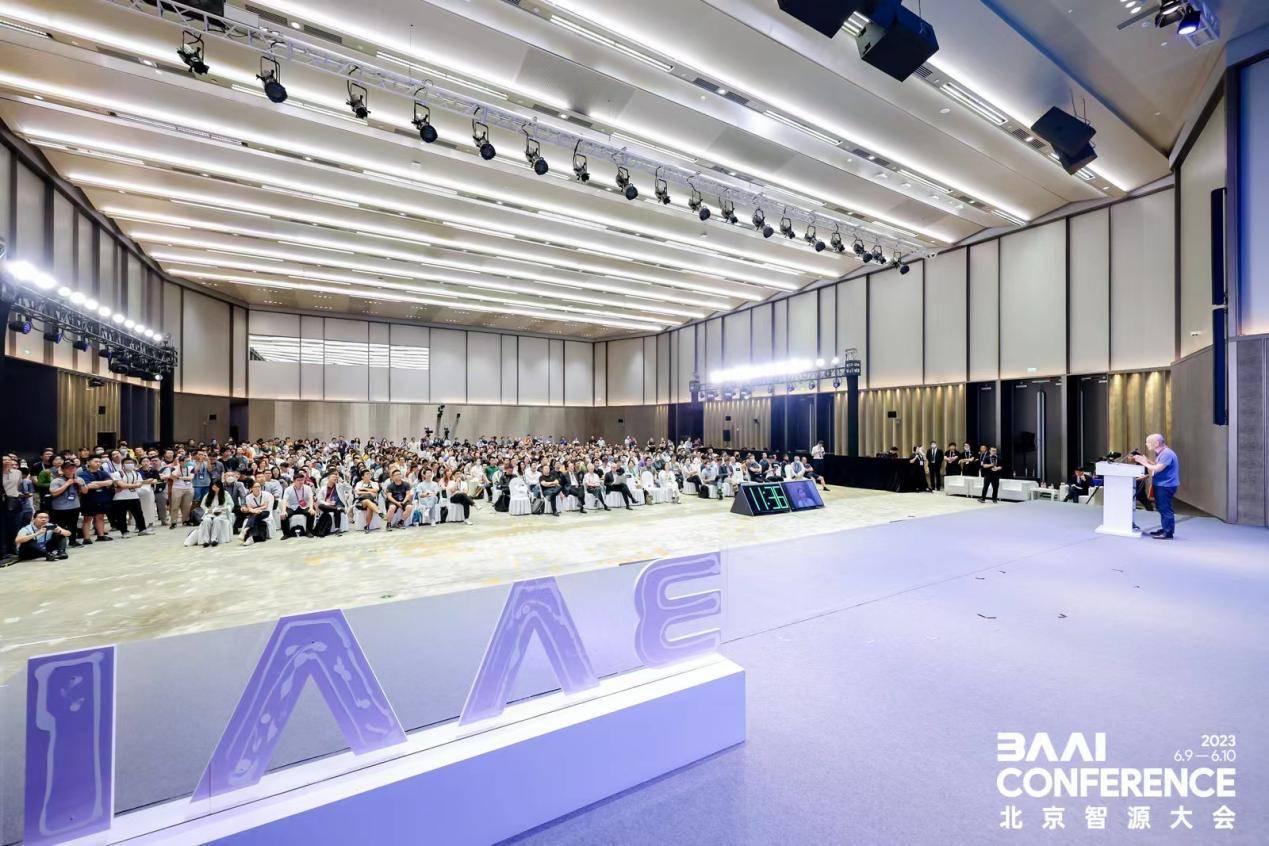
At the AI Security and Alignment Forum, many experts and scholars communicated. In the era of large models, how to ensure that increasingly powerful and versatile artificial intelligence systems are safe, controllable, and consistent with human intentions and values is an extremely important issue. This safety issue is also known as the human-machine alignment (AI alignment) problem, and it represents one of the most urgent and meaningful scientific challenges facing human society this century.
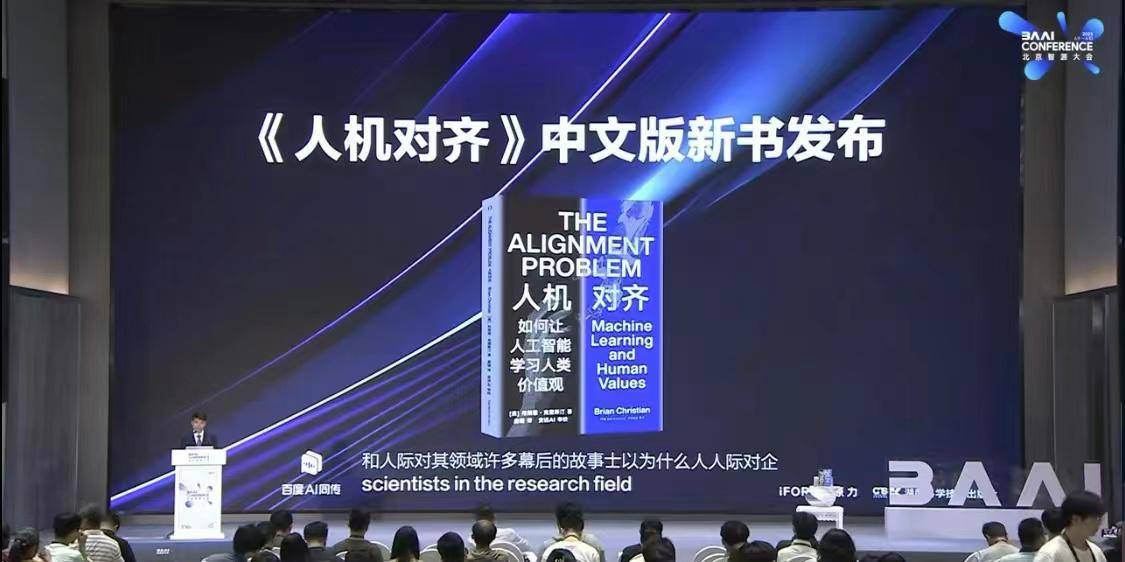
At the forum, 14 domestic and foreign guests, including "Father of Deep Learning" Geoffrey Hinton, OpenAI founder Sam Altman, and Academician Zhang Bo, focused on human-machine alignment and the feasibility of large models. They were scientific writers who were highly consistent with the topics of this forum. Brian Christian's latest work - The Alignment Problem, the Chinese version of which is titled "Human-Machine Alignment" was also officially released at the conference. The book was introduced and published by Hunan Science and Technology Press and reviewed by Anyuan AI. Xie Minxi, founder of Anyuan AI, presided over the new book release ceremony.
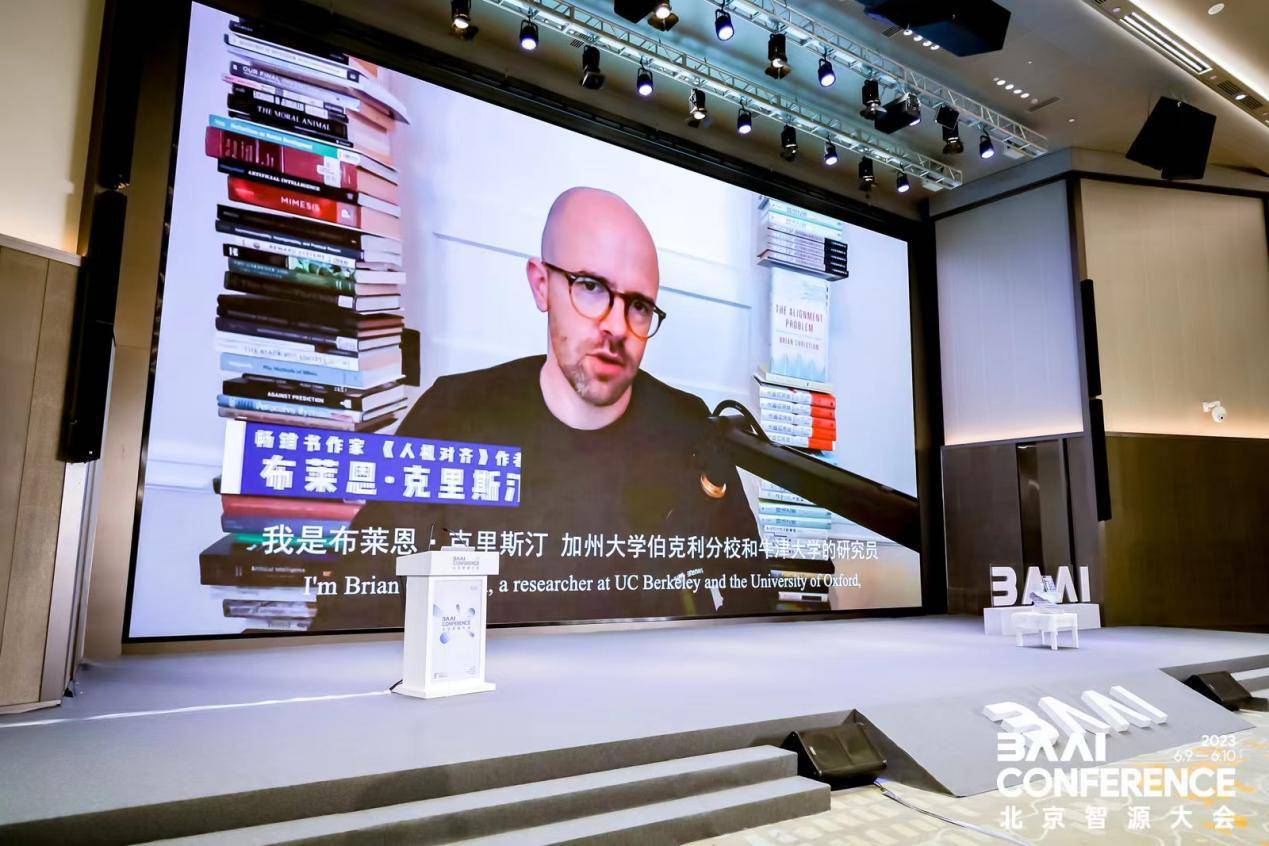
Brian Christian, author of "Human-Computer Alignment", was invited to speak online. In his speech, he first sent greetings to readers and guests attending the meeting. He is honored by the release of the new book "Human-Machine Alignment" and hopes that the book can contribute to continued research in the field of artificial intelligence in China. At the same time, a brief introduction to the main content of "Human-Machine Alignment" is given: The book is divided into three parts. The first part discusses the current ethical and safety issues affecting machine learning systems. The second part is called autonomy, focusing on supervision. and self-supervised learning to reinforcement learning. The third article explores how we align complex AI systems in the real world based on supervised learning, self-supervised learning, and reinforcement learning. We hope that the release of "Human-Computer Alignment" in China will not only help researchers, but also help us convey our enthusiasm for this field to every non-professional. He finally expressed his expectation that the global development of the field of artificial intelligence would be promoted through discussions at this conference and China’s research in the field of AI.
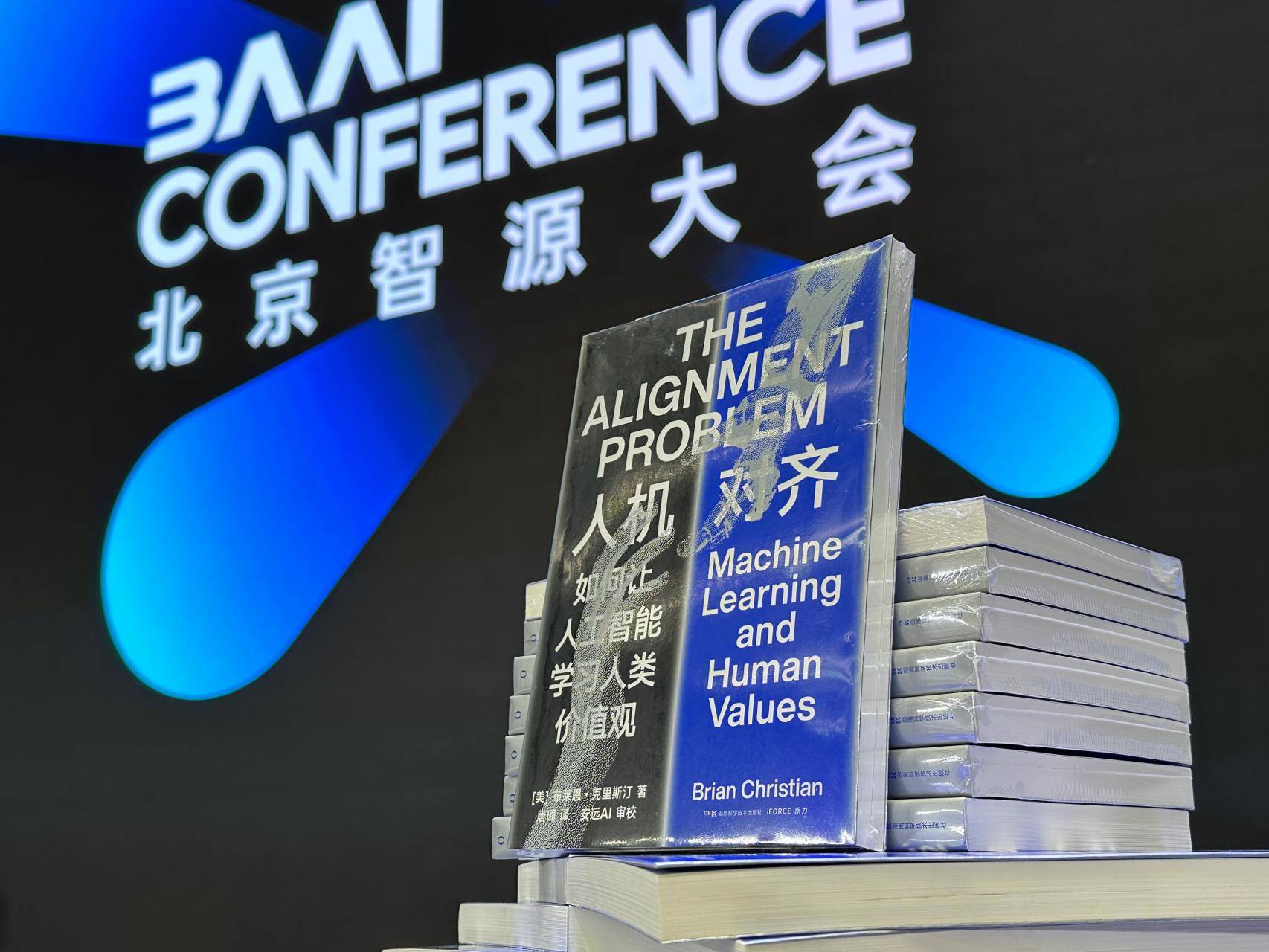
《Human-Machine Alignment》
【US】Written by Brian Christian; Translated by Tang Lu
Publisher: Hunan Science and Technology Press
Modern machine learning systems have become very powerful and can observe and listen to information on our behalf in various situations, and make decisions for us. But alarm bells have sounded. As machine learning advances rapidly, so do concerns. Potential risks and ethical issues can arise when artificial intelligence (AI) behaves inconsistently with our true goals. The researchers refer to it as the alignment problem.
In a vivid style, Brian Christian clearly explains the issues that are inseparable from AI and us, and readers of his best-selling works have benefited a lot. In the book, we will get to know the first batch of scholars who actively dealt with the alignment problem, and learn about their extraordinary efforts and ambitious plans to prevent the development of AI from getting out of control. Kristen not only succinctly described the development history of machine learning, but also personally went deep into the front lines of scientific research to talk to scientists, accurately presenting the cutting-edge progress of machine learning. The success or failure of research on alignment issues will have a vital impact on the future of mankind, and readers can deeply realize this.
Alignment issues are also a mirror that exposes our own biases and blind spots as humans, allowing us to see clearly our own never-stated assumptions and often contradictory goals. This is a brilliant, interdisciplinary epic that examines not only human technology but human culture, at times frustrating and sometimes revealing.
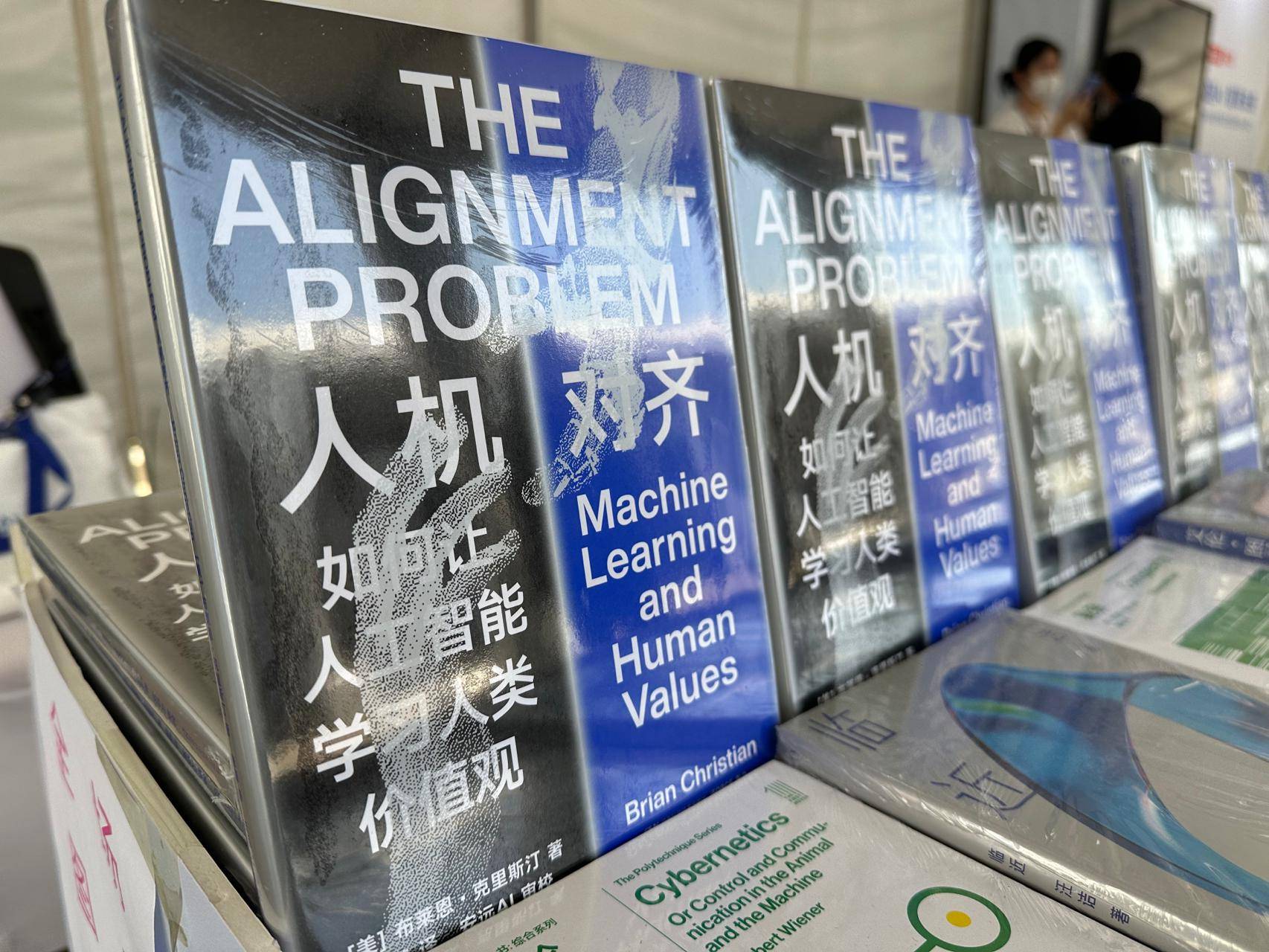
This book has received enthusiastic response when published abroad. It was named by Microsoft CEO Satya Nadella as one of the five books that most inspire him in 2021, and was rated as a key AI technology by the New York Times. and ethical issues, as the author Brian Christian said: "I hope that the Chinese AI field and the wider Chinese readers can also read this book. I hope that for you, this book is rich in content and Thought-provoking and inspiring, it will not only help you as researchers, but also help you pass on your enthusiasm for this field to the non-computer scientists in your life."
Xiaoxiang Morning News reporter Zhou Shihao
The above is the detailed content of The AI security topic at the 2023 Intelligent Source Conference has attracted much attention, and the new book 'Human-Machine Alignment' has been released.. For more information, please follow other related articles on the PHP Chinese website!




